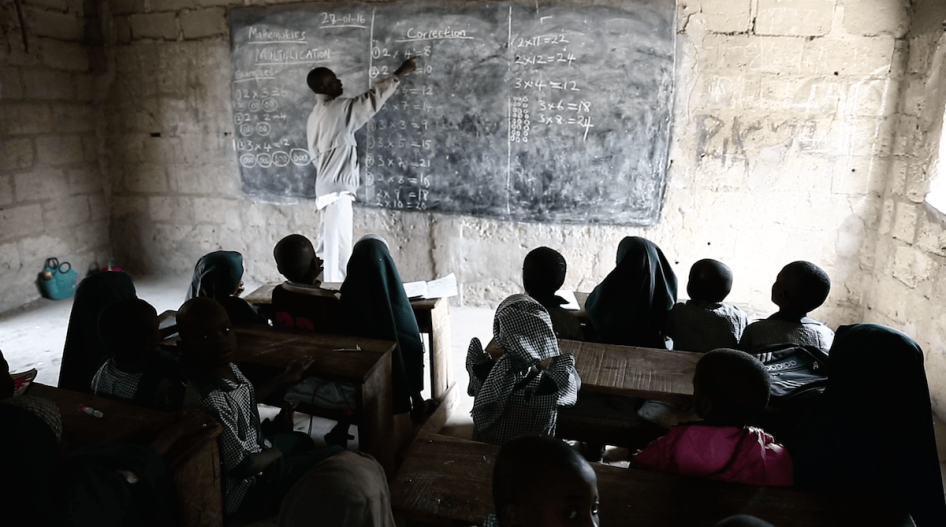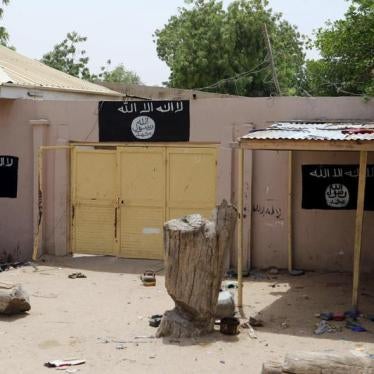This week, a United Nations expert committee will review Nigeria’s record concerning women and girls. It will be an opportunity both to endorse Nigeria’s efforts to protect its schoolgirls from abduction and attack, and to urge more action.
Boko Haram, a homegrown Islamist armed group, has for years carried out a campaign of deliberate attacks on girls, teachers, and schools.
“We were in the school when Boko Haram came and started shooting,” killing one boy, 15-year-old “Aisha” told Human Rights Watch in 2016. “They said they will come back if we don’t stop going to school. So the school was closed, and the military came to stay there. But Boko Haram still came back to burn the school.”
Besides such attacks, Human Rights Watch also documented how both Boko Haram and government troops have occupied schools, putting students’ safety and education at risk. The presence of fighters in schools disproportionately affects girls, who are especially exposed to dangers like sexual violence.
But in 2016, when the UN Committee on the Elimination of Discrimination against Women (CEDAW) asked the Nigerian government about the presence of troops in schools, the government questioned “the source and authenticity of this report.” That’s not good enough. The committee should press the government delegation for a firm answer on whether government forces have been using schools for military purposes.
Nigeria claims an operational code exists preventing their armed forces from using schools. The committee should ask for a copy of it. If such a prohibition exists, it should be recognized as best practice – so long as the military complies with it. Either way the committee should urge the government to protect schools from military use.
Nigeria has taken actions to protect girls that deserve praise. The government has improved security around schools and universities, including through digging ditches around schools; installing security lighting; using sandbags to deter intruders; stationing security personnel at schools; and setting up roadblocks on access roads. It’s also tried to find alternative ways to educate displaced children. Nigeria was also among the first countries to endorse the Safe Schools Declaration, an international political commitment to better protect students, teachers, and schools during war.
All children have the right to an education free from danger. This week, CEDAW can help make this right a reality for Nigerian girls whose education is under attack.
|
Dispatches
UN Reviews Nigeria’s Record Protecting Girls in War
Committee Should Address Access to Education, Troops in Schools
Your tax deductible gift can help stop human rights violations and save lives around the world.
Most Viewed
-
November 25, 2019
A Dirty Investment

-
June 3, 2025
“They’re Ruining People’s Lives”

-
December 21, 2023
Meta’s Broken Promises

-
January 25, 2024
“We’re Dying Here”

-
February 19, 2018
“All We Want is Equality”





